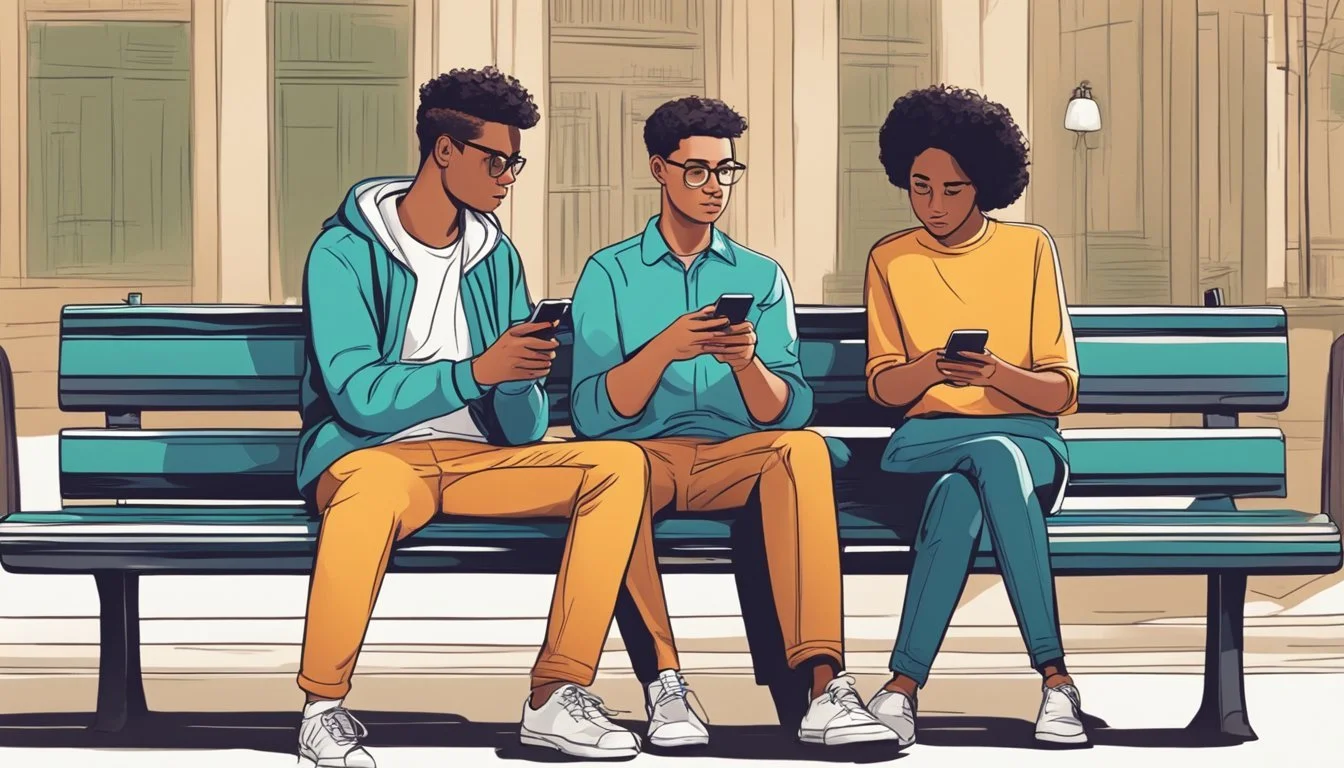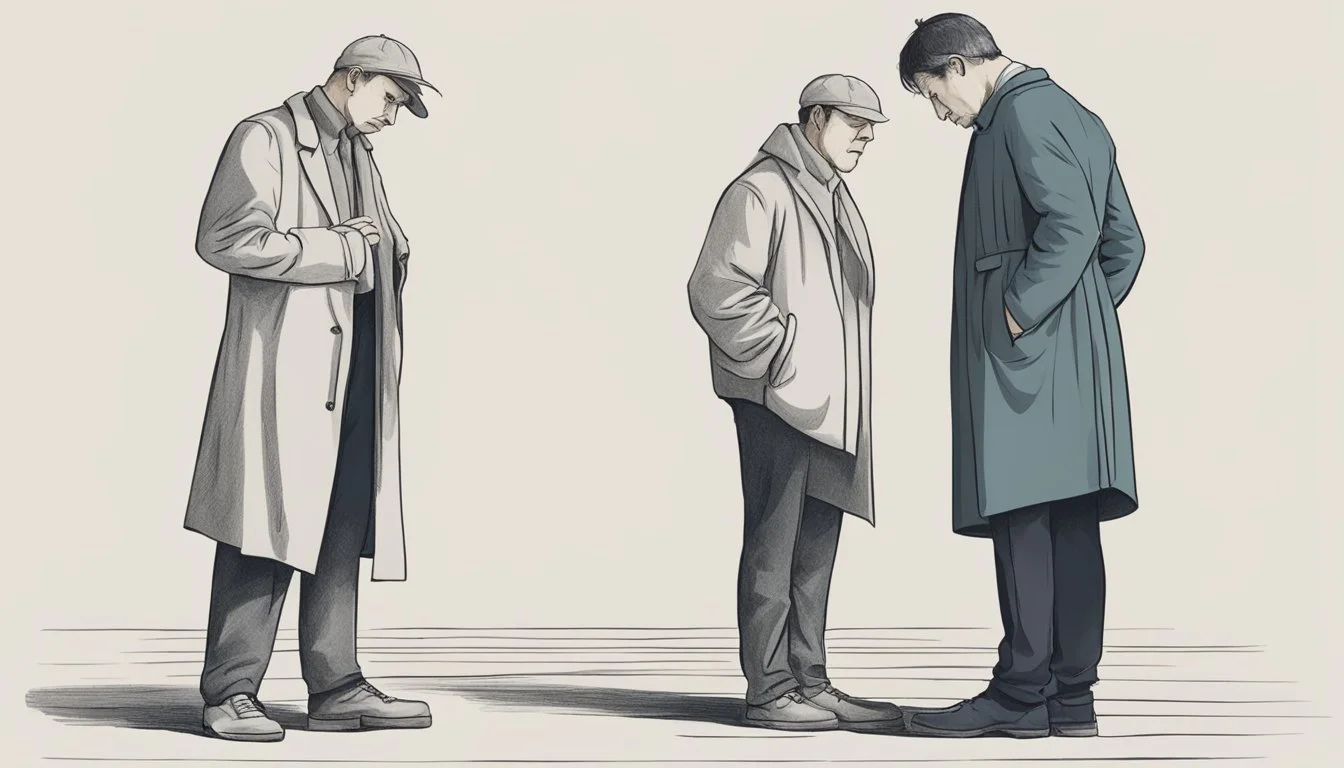13 Signs You're in a One-Sided Friendship
Recognize the Red Flags
Navigating friendships can often be a delicate balance. While many relationships flourish with mutual support and understanding, some can become overwhelmingly one-sided. Identifying these imbalances early can save one from prolonged distress.
How can you tell if you are in a one-sided friendship? Recognizing the signs is crucial for maintaining your emotional well-being and ensuring that your relationships are healthy and mutually beneficial. This article delves into the common indicators of a one-sided friendship and explores practical steps to address and potentially rectify the situation.
1) You Initiate Most of the Communication
In a balanced friendship, communication flows naturally between both parties. If one person consistently takes the lead in making contact, it may indicate an imbalance. Initiating plans, checking in, or starting conversations should be a shared responsibility.
When one friend constantly makes the effort to keep the interactions alive, it can feel exhausting. This effort often goes unnoticed or unreciprocated by the other person. It can lead to feelings of frustration and neglect.
A one-sided pattern of communication often signals that the other person isn't as invested in the relationship. While they may appreciate the attention and effort, they might not be willing to invest the same energy in return.
There can be many reasons for this imbalance. Sometimes, the other friend might be preoccupied with personal issues or simply take the other's efforts for granted. Regardless of the reason, consistent one-way communication is a red flag in friendships. If left unaddressed, it can erode the bond over time.
Efforts to rectify this situation should focus on honest discussions about how each person feels. This encourages a more reciprocal and engaging friendship. If there is no willingness to change, it may be time to reconsider the value of such a relationship.
For more information, see the article on how to address one-sided communication.
2) Your friend rarely makes time for you
A key sign of a one-sided friendship is when your friend seldom makes time for you. They might always seem busy with other commitments or often cancel plans at the last minute.
If you find yourself constantly being the one to initiate hangouts, it's unsettling. This pattern indicates a lack of reciprocal effort in maintaining the relationship.
In some cases, your friend might not even acknowledge your attempts to spend time together. They could offer vague excuses or suggest rescheduling but never follow through.
This can leave you feeling undervalued. A healthy friendship involves both parties valuing each other's time and making an effort to stay connected.
When your friend rarely makes time for you, it creates an imbalance. It shows that your relationship might not be a priority for them. In such situations, it’s important to reassess the friendship and consider your own emotional well-being. For more insights on identifying and addressing such issues, visit this article on signs of a one-sided friendship.
3) You Always Reach Out First
If one person consistently initiates contact, it may signify a one-sided friendship. They might be the only one calling or texting to make plans, check in, or just chat.
This pattern can indicate that the other person lacks investment in the relationship. Regularly prioritizing someone who rarely reciprocates can be exhausting.
Friendships thrive on mutual effort. When only one person consistently reaches out, it may be time to reassess the balance of the relationship. This dynamic often leaves one person feeling unappreciated and undervalued.
Efforts should ideally be shared. If initiating contact is one-sided, it could mean that the relationship is more important to one person than the other. This imbalance can lead to feelings of neglect.
There are exceptions, however. Sometimes, the other person may be dealing with personal issues or simply be bad at keeping in touch. Open communication can help clarify any misunderstandings and address the imbalance.
Ultimately, everyone deserves friends who make an equal effort. If you find yourself always being the one to reach out, consider discussing your feelings with your friend to understand their perspective and possibly re-establish a more balanced relationship.
4) Your friend doesn't show genuine interest in your life
A clear sign of a one-sided friendship is when your friend shows little interest in your personal life. They might rarely ask how you're doing or avoid conversations about your achievements, struggles, or daily experiences.
This lack of genuine curiosity can be hurtful and make you feel neglected. It becomes apparent when conversations are mostly centered around their lives and interests.
They may often interrupt or change the subject whenever you try to share something about yourself. This behavior suggests that they are more concerned with themselves rather than maintaining a balanced, reciprocal relationship.
Such a friendship can leave you feeling isolated and unappreciated. It can be frustrating when your efforts to engage are consistently met with indifference or disinterest.
Friends should naturally care about each other’s well-being and show support during difficult times. When this interest is missing, it can signal that the relationship may not be as mutual as believed.
Recognizing this pattern is essential for evaluating the health of the friendship. It's important to have relationships where both parties invest time and empathy into each other’s lives, fostering a more meaningful and supportive connection.
5) You Feel Emotionally Drained After Interactions
Feeling emotionally drained after spending time with a friend can be a significant sign of a one-sided friendship. They may offload all their problems onto you, leaving you mentally exhausted. This one-sided dynamic often occurs when one person constantly seeks emotional support without reciprocating.
This can happen through long complaints or emotionally charged conversations where your friend monopolizes the dialogue. Consistently being the listener without having your own needs met can lead to emotional fatigue. It's important to notice this pattern to understand the emotional toll it takes on you.
When you consistently feel drained, it can indicate that the friendship lacks balance. Healthy relationships involve mutual support and care.
In a one-sided friendship, the emotional burden often falls heavily on one person. If you feel depleted after interactions, it might be worth addressing the imbalance.
Neglecting your own emotional well-being to support a friend continuously can harm your mental health. It’s essential to maintain boundaries and recognize when a friendship drains you more than it energizes you. For more details, read about the signs of a toxic friendship.
6) Plans are usually on your friend's terms.
In a one-sided friendship, plans often revolve around the preferences and convenience of one person. This imbalance can manifest in various ways.
Your friend may habitually suggest meeting up only when it's convenient for them. They might cancel plans last minute or frequently reschedule, showing a lack of consideration for your time.
You might notice that they rarely take your schedule into account. For example, they often choose locations, times, and activities based solely on their preferences.
This pattern can extend to social events. Your friend may expect you to attend gatherings important to them while making little effort to attend events that matter to you.
If these behaviors are consistent, it might be a sign of a one-sided friendship. It indicates that the relationship is skewed towards fulfilling their needs, often at the expense of yours.
Recognizing these signs is crucial. It helps in understanding the dynamics of the friendship and determining whether it's equitable and respectful. Engaging in an open conversation about mutual expectations can sometimes address these concerns.
For a deeper understanding of one-sided friendships and identifying similar signs, consider reviewing this informative article.
7) You feel neglected or taken for granted
When someone feels neglected in a friendship, it often means their needs and emotions are not being acknowledged. He might notice that she never initiates contact or plans any activities. Instead, she always seems to rely on him to make the first move, whether it's a phone call or arranging a meetup.
Another common sign of being taken for granted is lack of appreciation. She might find herself regularly doing favors or going out of her way to help him, yet he rarely says thank you. This lack of gratitude can lead to feelings of resentment and disconnection.
Feeling neglected can also manifest when the other person consistently ignores or dismisses her opinions and suggestions. This might happen in group settings where her voice isn't heard or valued. It can also occur in one-on-one interactions where her thoughts are brushed aside.
He might also notice that she doesn’t show interest in his life. She doesn't ask about his day or how he's feeling, and the conversations are always centered on her. This imbalance indicates that she isn't valuing his presence or contributions to the friendship.
People may also feel neglected when their needs are consistently ignored. For instance, when he asks for support during challenging times and she fails to offer it, it signals a lack of concern and respect. This disregard is a clear indicator of being taken for granted in any relationship.
For more insights into recognizing signs of being taken for granted, consider reading this article.
8) There's a lack of reciprocity in emotional support
In a balanced friendship, both parties offer emotional support. When one person is always seeking comfort and never providing it, an imbalance forms.
This dynamic can make the supportive friend feel unappreciated. They may start to feel like their own emotional needs are ignored.
Feeling drained after interactions often indicates a lack of emotional reciprocation. This can take a toll on one’s well-being and emotional health.
Continually providing support without receiving any can lead to resentment. The friend who gives constantly may feel burdened.
In healthy friendships, emotional support should be mutual. Each friend should feel comfortable sharing their concerns and emotions.
When support is one-sided, it may be necessary to address the issue directly. Open communication can sometimes help restore balance in the friendship.
If the imbalance persists, it might be time to re-evaluate the friendship’s sustainability. Understanding one's own needs is crucial in maintaining healthy, supportive relationships.
Recognizing these signs early can help individuals protect themselves from emotional burnout.
9) Your friend makes you feel guilty for their mistakes.
In a one-sided friendship, it's common for one person to shift blame. When your friend makes a mistake, they might try to place the guilt on you.
This behavior is unfair and manipulative. By making you feel responsible for their errors, they avoid taking accountability.
This can create a stressful and unbalanced relationship. You might find yourself constantly apologizing or feeling like you're always at fault.
Frequent guilt-tripping can damage your self-esteem. It can make you question your own actions and worth.
It's important to recognize this pattern. Being blamed for someone else's mistakes is not a sign of a healthy friendship. It reflects a lack of respect and empathy.
You deserve a friend who takes responsibility for their actions. Recognize the signs and protect your emotional well-being.
If this pattern continues, it may be time to reevaluate the friendship. Ending a toxic relationship can lead to healthier and more balanced connections. For more information, you can read further on MindBodyGreen.
10) You Constantly Have to Apologize to Keep the Peace
In a one-sided friendship, one person often feels compelled to apologize frequently to avoid conflict. This behavior can indicate that the relationship lacks mutual respect and understanding.
The person who constantly apologizes may feel they must walk on eggshells. This can result in them taking blame unnecessarily to maintain harmony.
This dynamic can be mentally draining. The apologizing party might sacrifice their own needs and feelings to appease the other, leading to resentment and emotional fatigue. Such patterns are unhealthy and often unsustainable over the long-term.
If you recognize this habit in your own friendships, it may be time to reassess the relationship. It's essential to prioritize mutual respect and open communication.
In balanced friendships, both parties should feel comfortable expressing themselves without fear of constant conflict. If this balance is missing, it could be a sign to reevaluate the friendship's value and impact on your well-being. For more insights, consider exploring the advice from MindBodyGreen and Ideapod.
11) Your achievements are often downplayed.
In a one-sided friendship, signs of imbalance can include the downplaying of achievements. When a person shares successes, a supportive friend usually celebrates them. However, in a one-sided friendship, the friend may minimize or dismiss these achievements.
This behavior can manifest in various ways. They might quickly change the subject to something unrelated or compare your success to something trivial. Such actions indicate a lack of genuine happiness for the other person's accomplishments.
Consistent downplaying of achievements can lead to feelings of frustration and disappointment. It suggests that the friend does not value or respect the individual's hard work and successes. This can cause an emotional rift in the friendship over time.
12) You feel like an option rather than a priority.
Feeling like an option rather than a priority can be a clear indicator of a one-sided friendship. When one person consistently takes precedence in decision-making, it reveals an imbalance. This dynamic often leaves the other person feeling undervalued and unimportant.
In a balanced friendship, both individuals should feel prioritized. This means making time for each other, listening attentively, and valuing each other's opinions. If one person continually disregards the other's needs, it's a sign of an unhealthy relationship.
Mutual respect is crucial for any friendship. When someone feels like an option, their needs and wants are often ignored or brushed aside. This can lead to feelings of frustration and dissatisfaction.
A true friend makes an effort to show they care. They demonstrate this through actions like checking in regularly, being there in times of need, and ensuring that plans involve both parties' interests. If these aspects are missing, it suggests a need for reevaluation of the friendship.
To identify if you're seen as an option, observe the frequency and quality of communication. Are you the one always initiating contact? Are your suggestions often dismissed? These are significant red flags. If this pattern persists, it may be time to consider whether this friendship truly benefits you.
13) Your concerns are dismissed or overlooked
A key sign of a one-sided friendship is when your concerns are routinely dismissed or ignored by your friend. This may happen when you share something important, and your friend changes the subject or gives a dismissive response.
If this is a pattern, it can indicate that your friend does not value your feelings or input. Dismissing concerns can also show a lack of respect for you as a person. Respect is essential in any healthy relationship.
In some cases, your friend may even undermine your feelings, making you question whether your concerns are valid. When someone consistently overlooks your worries, it can make you feel invisible and unheard.
This behavior can have a negative impact on your mental and emotional well-being. Open and supportive communication is crucial in friendships. Without this, the relationship can feel draining and unsustainable.
It’s important to address these issues directly. If your friend continues to dismiss your concerns, it might be time to reevaluate the friendship. Recognizing this pattern is the first step in understanding the imbalance in your relationship.
Learn more about the signs of a one-sided friendship to better identify and address these issues.
Understanding One-Sided Friendships
One-sided friendships often involve an imbalance in effort and emotional investment, leading to significant emotional strain for the individual giving more.
Definition and Characteristics
In a one-sided friendship, one person consistently puts in more effort than the other. This dynamic is marked by an imbalance in communication, emotional availability, and reciprocity.
The individual contributing more might often initiate contact and provide support, while the other party may only engage when it benefits them. Examples include:
One person always starts conversations.
The other frequently ignores messages or requests.
The friend is only available when convenient for them.
Such friendships lack mutual respect and equity, leading to feelings of neglect and frustration for the giver.
Psychological Impact on Individuals
Experiencing a one-sided friendship can significantly affect a person's mental health. It can lead to feelings of loneliness, low self-esteem, and increased anxiety.
The constant emotional drain may cause the individual to feel undervalued and unimportant. Key impacts can include:
Isolation: Feeling unheard or unsupported can lead to withdrawal from social activities.
Stress: Persistent effort with little return can increase emotional and physical stress.
Self-esteem issues: The imbalance can cause doubts about self-worth and value.
Such effects underscore the importance of recognizing and addressing one-sided friendships to maintain healthy social connections.
How to Address a One-Sided Friendship
Addressing a one-sided friendship requires open communication and clear boundaries. These steps can help ensure both parties understand each other's needs and expectations.
Communicating Your Concerns
Open and honest communication is vital. Begin by addressing the issue in a calm and non-confrontational manner. Use "I" statements to express feelings without sounding accusatory. For example, "I feel neglected when my messages go unanswered."
It can help to provide specific examples. Mention instances where you felt unsupported or ignored. This makes your concerns tangible. Clarify that your goal is to improve the friendship, not blame them. Listening to their perspective is equally important. This creates a dialogue rather than a monologue.
Setting Boundaries and Expectations
Once concerns have been communicated, establishing boundaries is the next step. Clearly define what you need from the friendship. This might include regular check-ins or balanced effort in making plans.
Be specific about any behaviors you find unacceptable, such as consistent last-minute cancellations. Setting these boundaries early helps prevent future misunderstandings. Stay consistent with your boundaries. If your friend respects them, it reflects their commitment to the relationship.
Re-evaluate the friendship periodically. Ensure that mutual respect and effort continue to exist. This ongoing assessment can prevent the friendship from becoming one-sided again.






